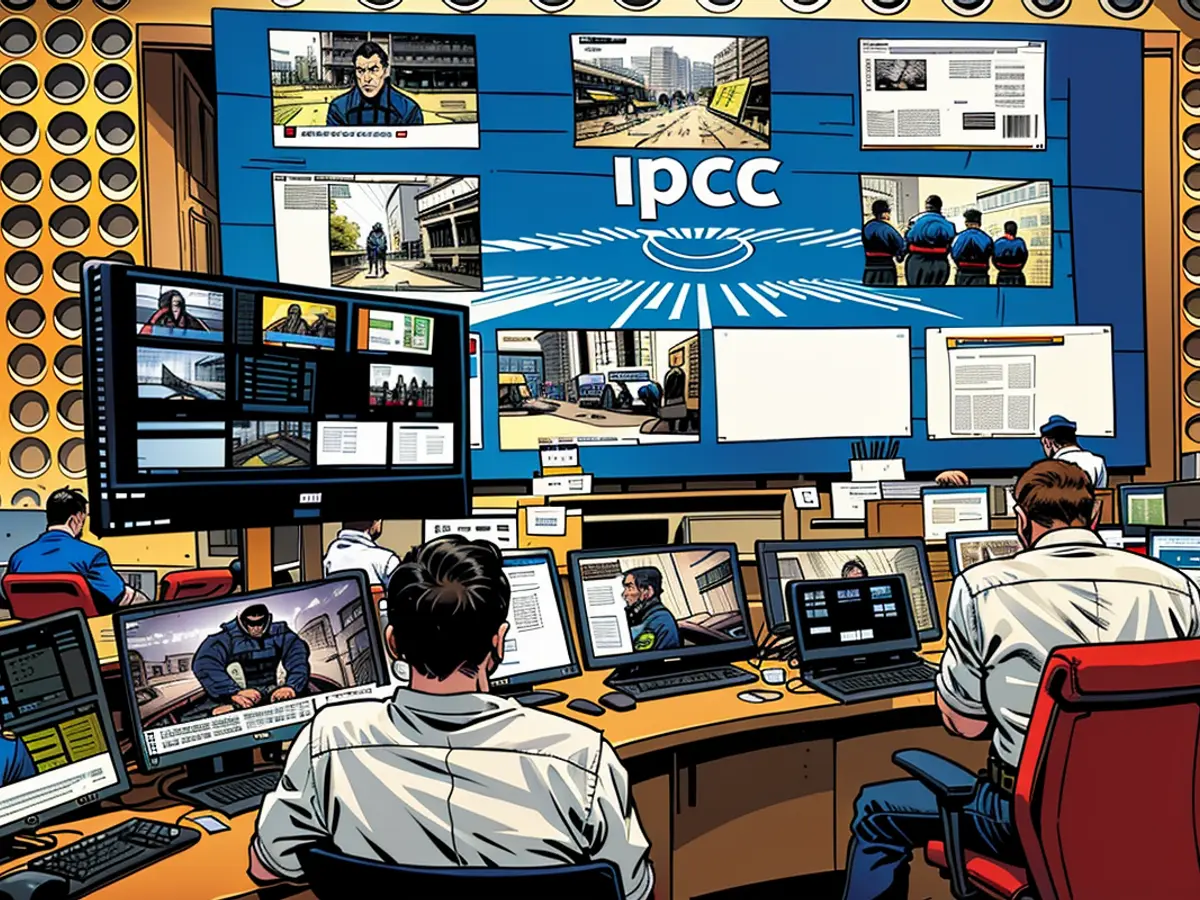Potential Threat of Terrorism at the EM Event - Do German authorities possess measures against potential attacks, according to a security expert's claims?
The UEFA European Championship, which is taking place currently, has come at a time when the threat of Islamic terrorism in Germany is increasing. This is due to international conflicts and how the German government is positioning itself. "Germany is a target for jihadists because our country, along with the United States, is seen as one of the key supporters of Israel," said Thomas Haldenwang, President of the Constitutional Protection, to the German Press Agency. Can fans simply ignore this threat and celebrate carefree?
Dirk Peglow, head of the Federal Association of Criminal Investigators (BDK), says we should not let terror scenarios ruin the fun of this European Championship. That is the goal of terrorist groups: "They want to spread fear and affect our social life." The level of terrorist threat has been high for some time, regardless of the sporting event. "We monitor the situation by gathering information from domestic and foreign intelligence services and engaging with the security authorities," explains BDK chief Peglow.
During the EM, the police will rely on familiar procedures for football matches, on a much larger scale. "We have been focusing on access routes, escape routes, and entry to stadiums," says BDK's chief. With fans and teams from different countries coming to Germany, the authorities face even greater pressure compared to Bundesliga games. "The protection of teams like the Ukrainian national team needs to be stepped up," Peglow adds.
A security center has been set up specifically for the EM. German Interior and Sports Minister Nancy Faeser described the situation in the Bundespressekonferenz on the security situation for the EM as "tense." The threat from ISPK is particularly high. During the EM, authorities will pay close attention to border and airport control, as well as rail transport. This means that police officers cannot take leave, and 350 foreign police officers will be deployed in Germany.
"This will be a challenging event for the security authorities, not a joyful one," says Herbert Reul, Interior Minister of North Rhine-Westphalia. In his federal state, the International Police Cooperation Center (IPCC) was established to coordinate the national and international police work for the tournament.
According to BDK chief Dirk Peglow, the new IPCC is an important measure: "This allows information from domestic and foreign authorities to converge and be coordinated under the leadership of the Federal Ministry of the Interior." In general, security is a top priority at this EURO, according to the Federal Ministry of the Interior. "Our focus ranges from the threat of Islamic terrorism to hooligans and other offenders, to cyber attacks and other dangers."
Despite the security measures, some people are still skeptical about the EURO. A representative study by the University of Hohenheim revealed that 20 percent of those surveyed avoid public viewing events out of fear of terrorism, while 34 percent avoid them due to the crowds. Since the World Cup 2006, which is considered the start of group viewing in Germany, the political landscape has drastically changed. "We now have a completely different starting situation, both in terms of world politics and national politics," says Dirk Peglow.
Though Peglow takes the fears of the people seriously, he sees no reason to worry. The police are well-prepared for the EURO: "The security authorities have been informed about the terror threat regardless of the EURO." However, fans can contribute to security in public spaces and stadiums by being vigilant. "If any suspicious incidents are noticed, it's vital that these are reported to the security authorities as quickly as possible," urges Dirk Peglow. "But if you want to attend the games, I'd rather advise you to enjoy them."
Whether a similar enthusiasm will emerge at this EURO as at Germany's last home tournament depends not only on the performance of the German team but also on the effectiveness of the security measures. "At the end of the day, we have to admit that there is no 100% security," admits Dirk Peglow.
Sources: German Federal Ministry of the Interior, University of Hohenheim, Phoenix, DPA, AFP.

Read also:
The German Interior and Sports Minister Nancy Faeser acknowledged the high threat of terrorism from ISPK during the European Football Championship, and the IPCC, established in North Rhine-Westphalia, plays a crucial role in coordinating the national and international police work for the tournament. In light of the potential danger of terrorism, Thomas Haldenwang, the President of the Constitutional Protection, highlighted Germany's status as a target for jihadists due to its support for Israel.







